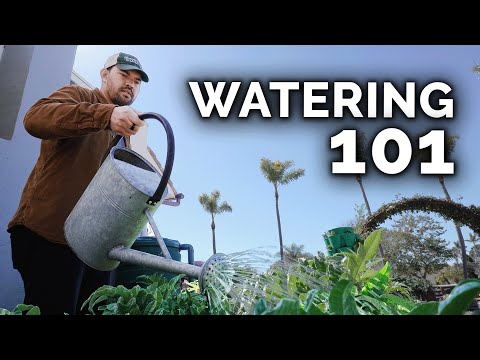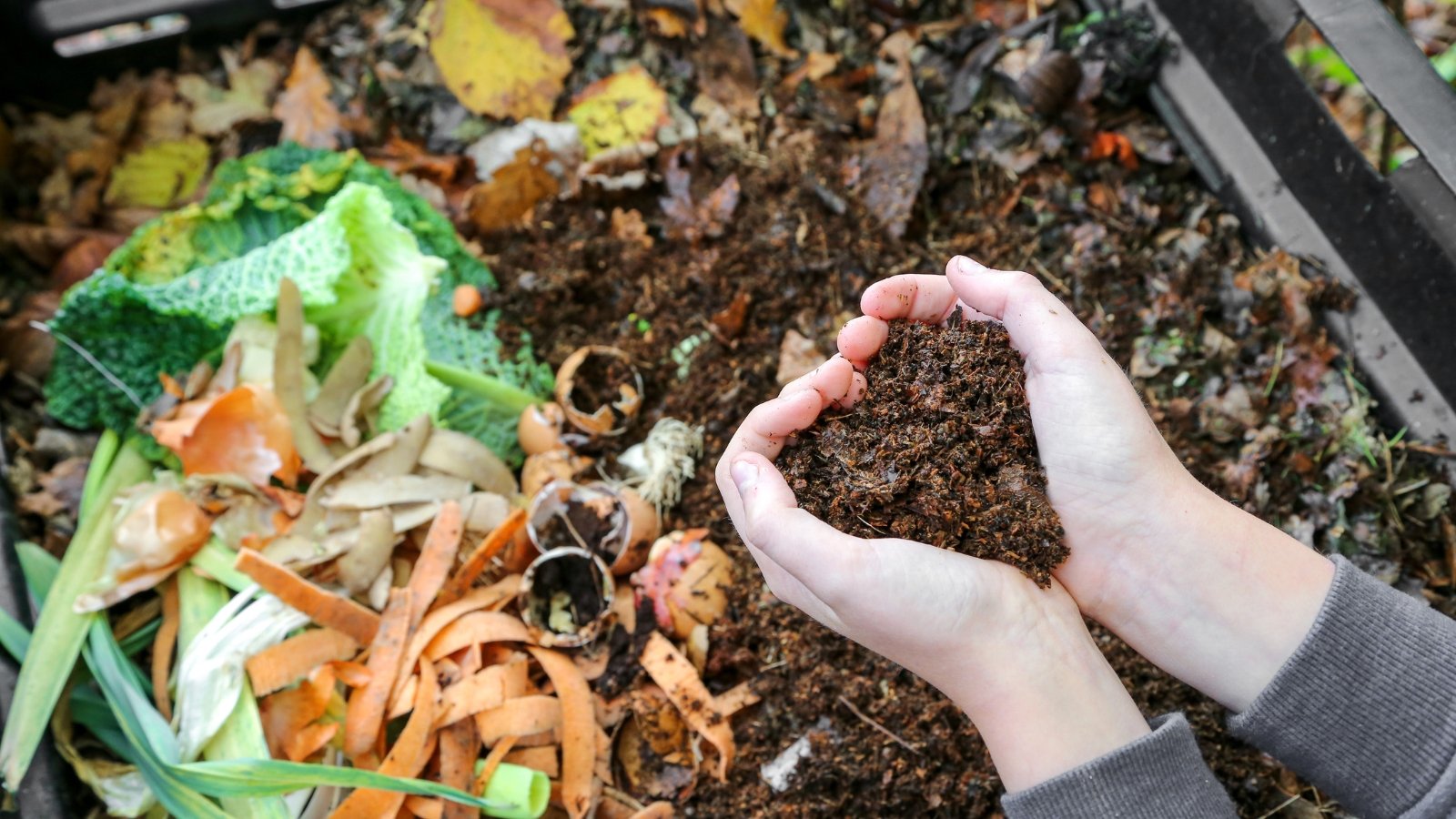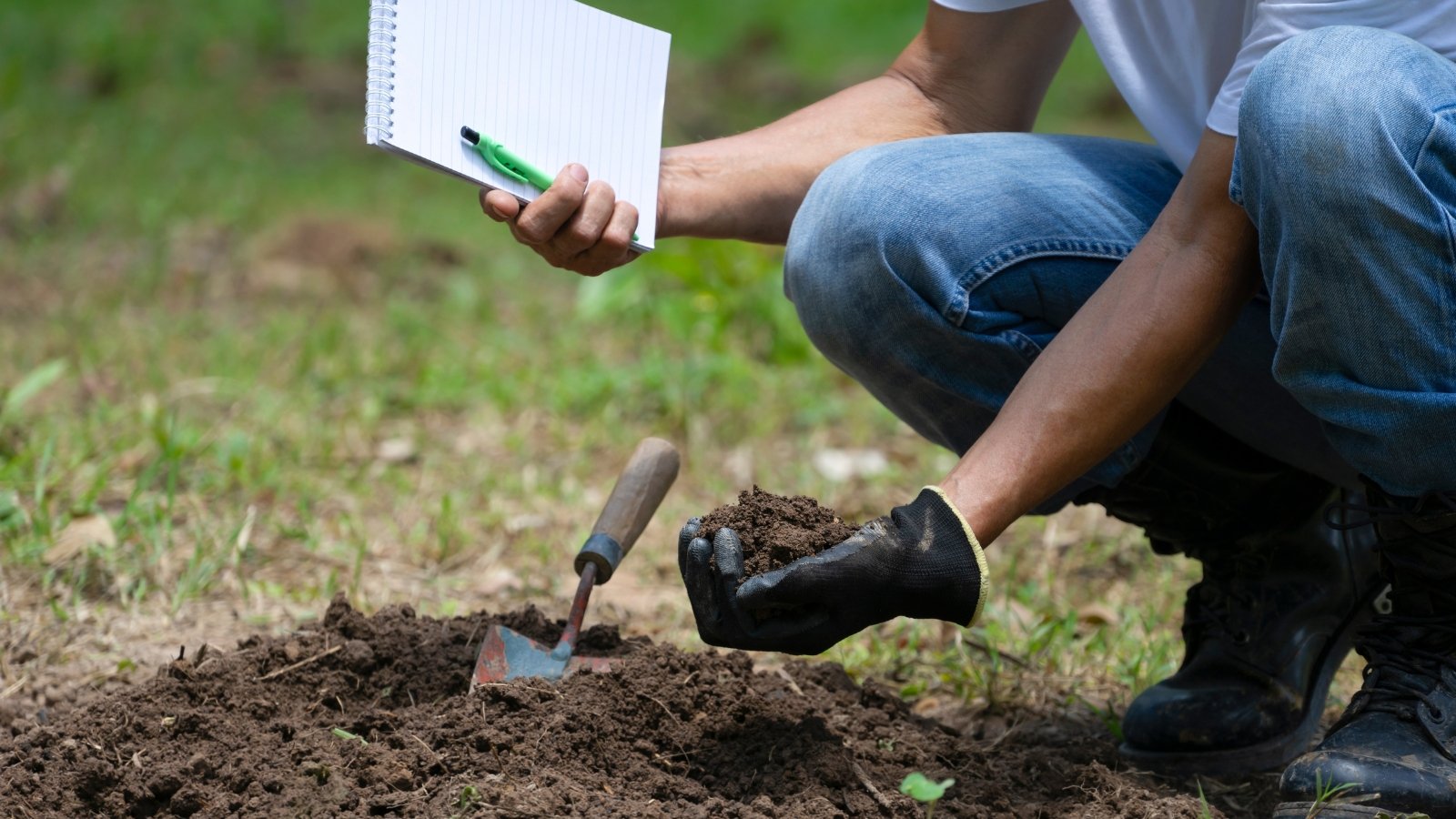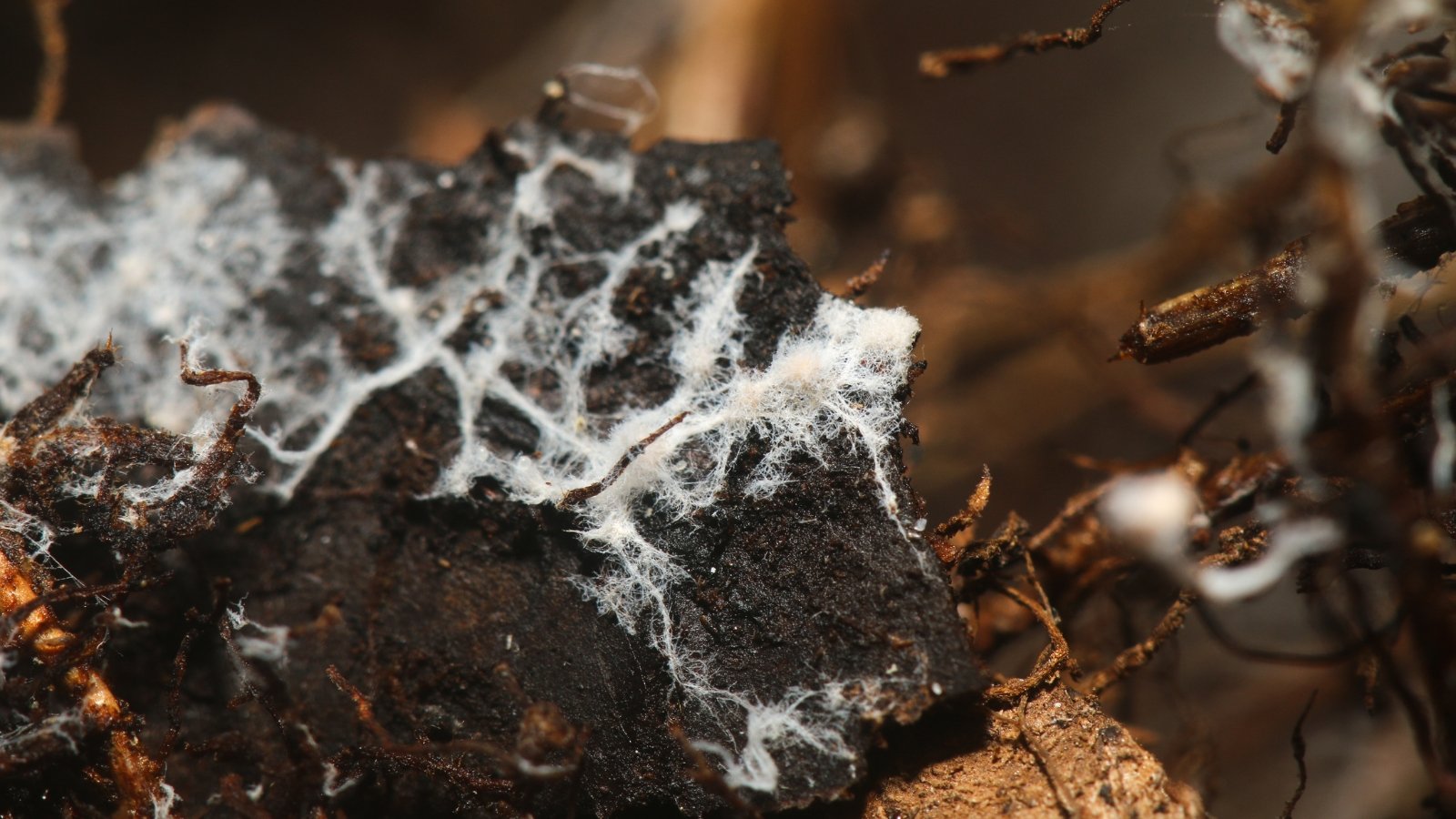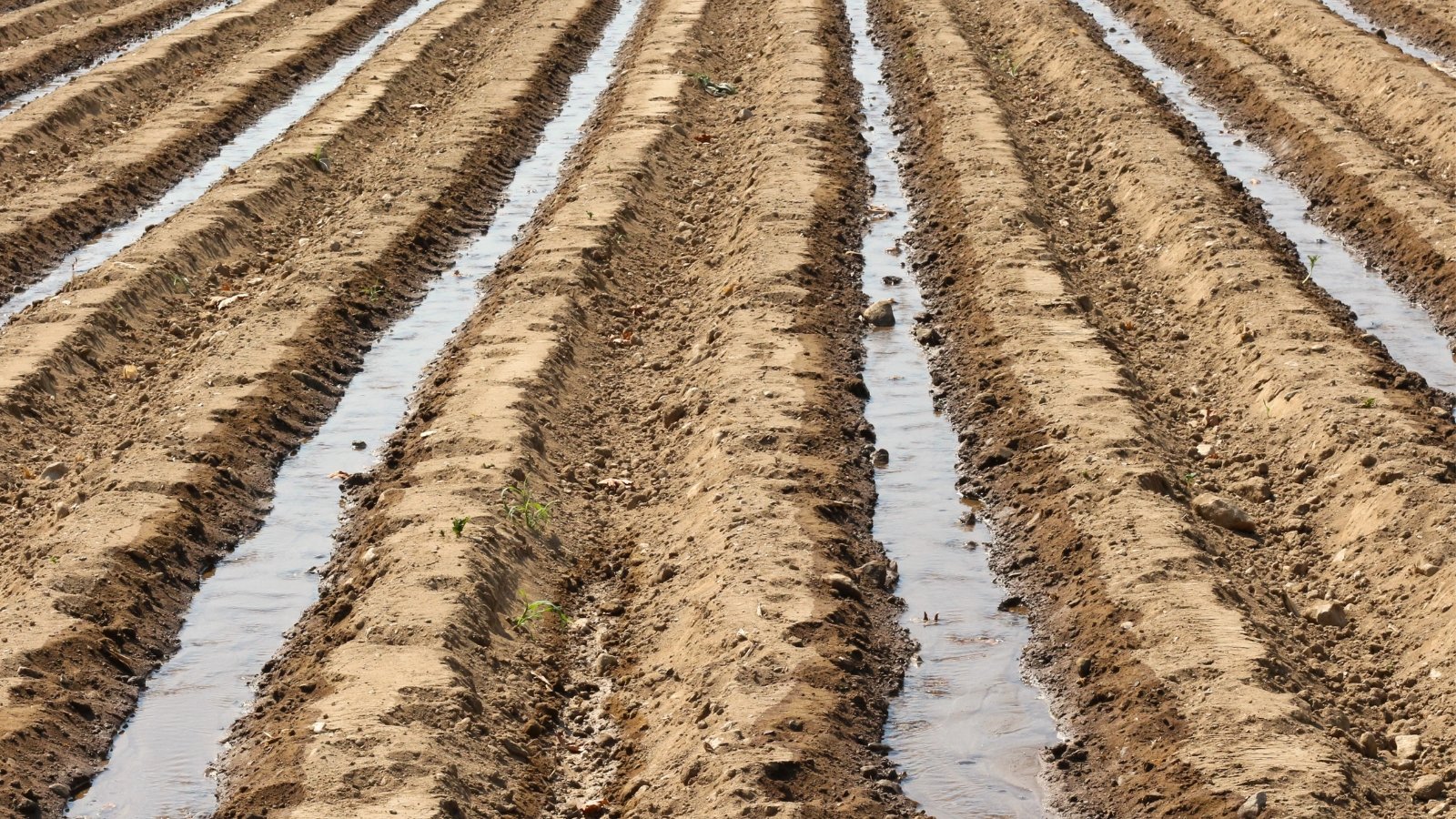
Methods to Stop Soil Leaching within the Backyard: 6 Skilled Suggestions
Not all fertilizers keep within the soil. Leaching is the method of contaminants washing out of soil and into waterways. This isn’t solely wasteful to your pocketbook and dangerous to your backyard crops, however it may also be extraordinarily damaging to native ecosystems.
As a substitute of staying in plant root zones, most leached nitrogen (and different compounds like phosphorus and potassium) flows into waterways, contributing to devastating algae blooms and useless zones all through the Mississippi River Basin and Gulf of Mexico. To stop environmental injury, we want fertilizers to remain within the soil the place crops can use them.
Sandy soils in high-rainfall areas have the best threat for leaching, however any grime could be inclined if it has poor construction, injury from tilling, or an absence of natural matter. Let’s discover find out how to forestall leaching in your backyard and preserve fertilizers the place they belong.
The Quick Reply
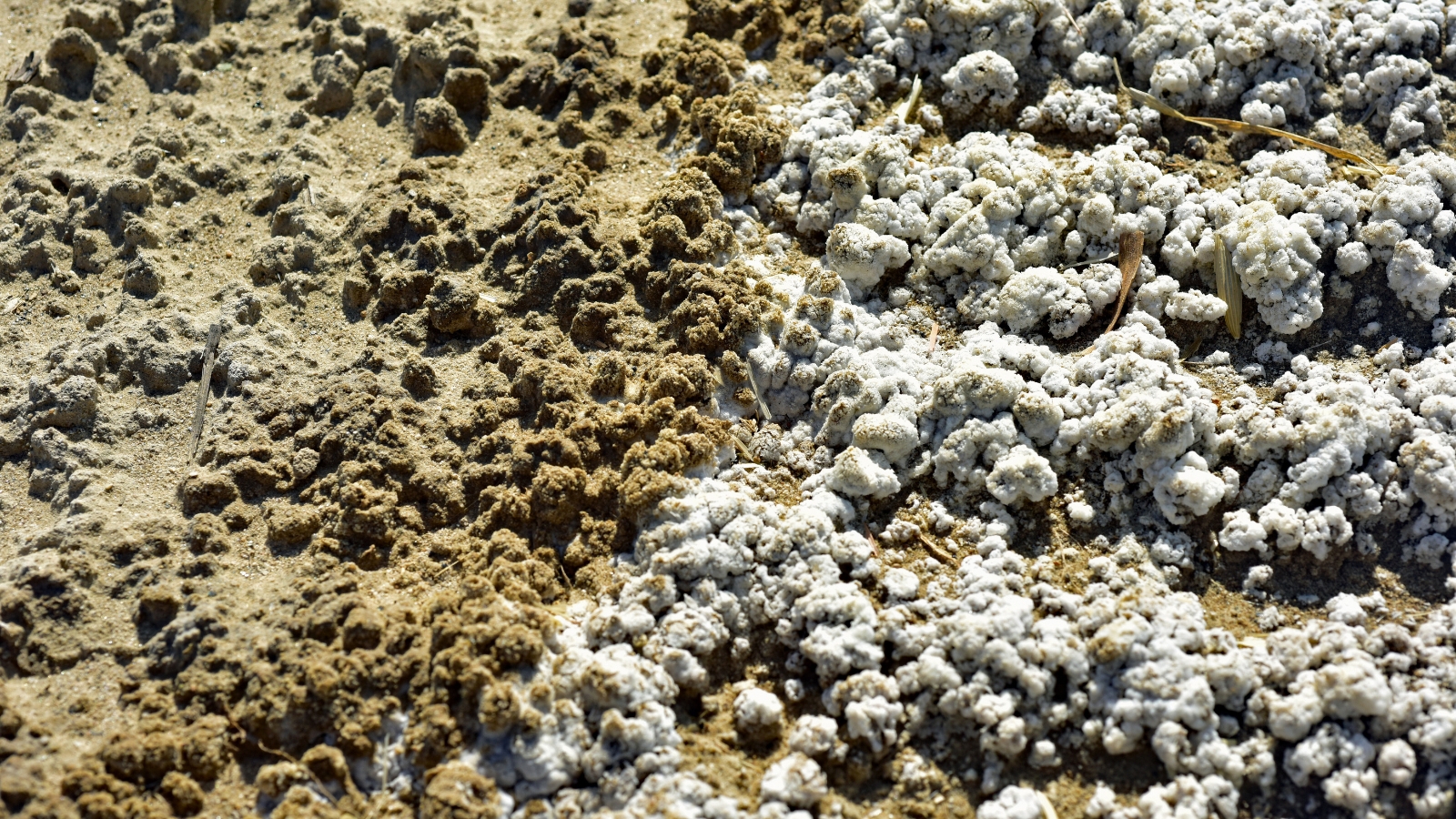

Leaching is when water flushes fertilizer vitamins and different substances out of the soil. Extreme rainfall or irrigation can “flush” vitamins out of plant root zones, shifting these contaminants into groundwater, streams, rivers, and lakes. This phenomenon is a significant reason behind algal blooms and the Lifeless Zone within the Gulf of Mexico. It additionally dramatically reduces backyard yields, stripping soil of its fertility and losing cash used on fertilizer merchandise.
You may forestall leaching by:
- Avoiding extra fertilizer or overfeeding
- Swapping artificial nitrogen fertilizers for natural, slow-release fertility
- Growing natural matter with compost, manure, mulch, and canopy crops
- Guaranteeing fixed plant cowl by maintaining residing roots within the floor
- By no means leaving naked grime within the backyard
- Utilizing mulch, akin to leaves, straw, or compost
- Avoiding overwatering
- Lowering or eliminating tillage
- Utilizing perennial groundcover in pathways
- Plant perennial herbs, shrubs, and bushes
The Lengthy Reply
Not every little thing you set in your soil will stick round for lengthy, and including fertilizer doesn’t imply vitamins will keep within the floor in your crops to uptake. It’s because the belowground ecosystem is consistently altering with publicity to water, air, minerals, roots, and microorganisms.
Water is especially highly effective as a result of it has the flexibility to scrub supplies out of the soil, draining these soluble chemical substances or minerals into groundwater, streams, and rivers. A discharge of water-soluble fertilizers and chemical substances could be extremely dangerous to aquatic ecosystems and water reservoirs that people depend on for hydration. With a view to forestall contaminated waterways and preserve plant vitamins in your backyard, you should perceive what causes leaching and find out how to forestall it.
The Downside With Leached Vitamins
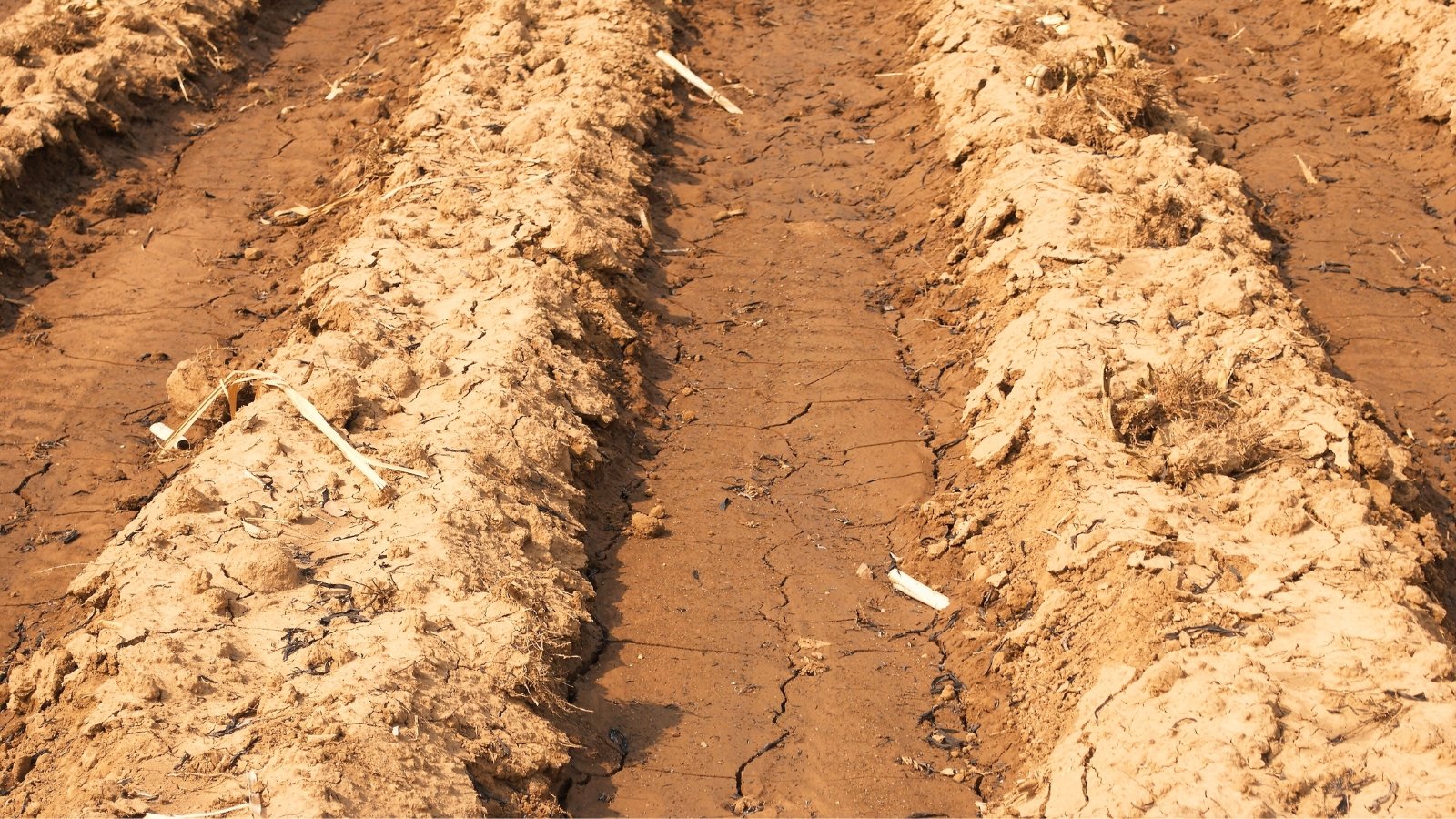

Extra vitamins, poor soil construction, and a number of moisture are a recipe for ecological catastrophe. When water rushes by means of degraded floor, water-soluble fertilizers and chemical substances are flushed away with it.
Fertilizer air pollution is most notably linked to the Lifeless Zone within the Gulf of Mexico. That is the place an accumulation of nitrogen and phosphorus runoff has concentrated within the ocean, inflicting an overgrowth of algae. When algal blooms type on the floor, they quickly use all of the oxygen within the water, inflicting a hypoxic (low-oxygen) zone within the water beneath. Consequently, huge quantities of fish, coral, and aquatic mammals die.
Nevertheless, there are much more issues related to contaminants that get washed out of the grime. When all these minerals and contaminants movement into the groundwater, crops are left with out fertility of their root zone and native waterways grow to be polluted with soluble vitamins. As you possibly can think about, this creates a great deal of issues for people, crops, and the remainder of the ecosystem.
The largest issues brought on by leaching embrace:
- Lack of crop productiveness
- Nutrient deficiencies in crops
- Low soil fertility
- Worsening erosion
- Financial loss from ineffective fertilizers
- Waterway contamination
- Ingesting water air pollution
- Algae blooms
- Aquatic dieoff
Causes
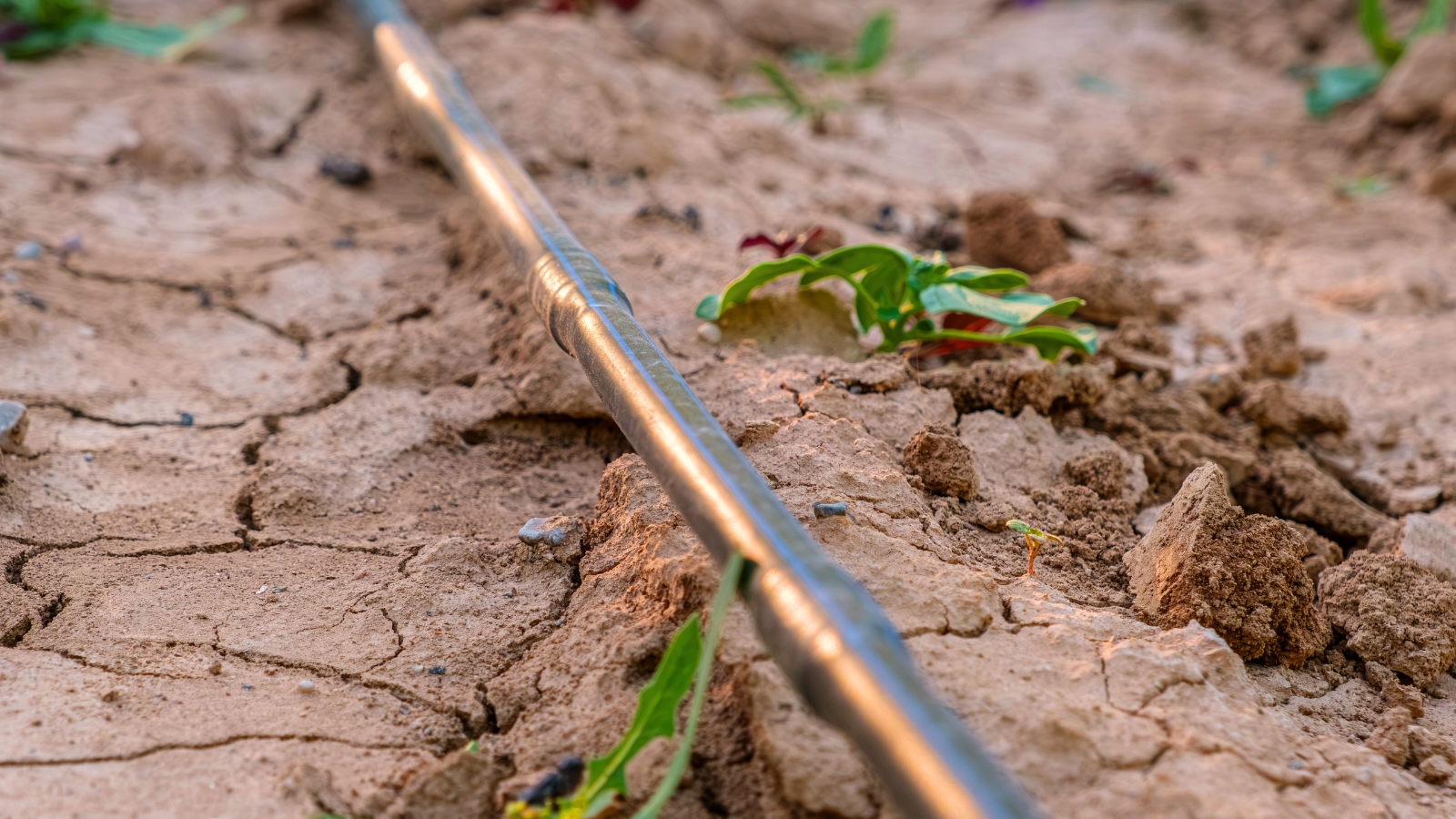

Leaching is brought on by a triple risk of points:
- Extra vitamins (particularly artificial soluble fertilizers)
- Poor soil construction (notably barren, closely disturbed, sandy floor)
- Loads of moisture (rainfall or irrigation)
When these points converge, it causes vitamins to flee our gardens and depart crops poor of many vitamins. Nitrogen, potassium, and phosphorus are essentially the most generally leached macronutrients. Nevertheless, micronutrients like calcium, magnesium, and boron can also leach.
Many crops wrestle with deficiencies of those vitamins as a result of the soil has a tougher time “holding on” to them. Water-soluble minerals simply dissolve into pockets of water within the soil answer, they usually can get flushed out over time, or when a lot of water is poured into the bottom without delay.
Different main causes of leaching embrace:
If there’s a lack of decomposed plant or animal matter (humus), the soil will wrestle to carry onto vitamins. Natural matter like compost is negatively charged, which suggests it attracts positively charged vitamins like a magnet. When these vitamins don’t have a “magnet,” they float into moisture pockets, making them extra weak to washing away.
Clay particles are additionally negatively charged, which suggests they appeal to and maintain positively charged cations like nitrogen, potassium, calcium, and magnesium. If the bottom could be very sandy, or lacks clay and natural matter, then it has a largely web optimistic cost. Like magnets, the positively charged soluble vitamins will fail to “connect” to different positively charged particles.
When backyard beds are left barren for extended durations, the uncovered soil turns into additional weak to leaching. With out roots, cowl crops, or floor cowl to cowl the floor and maintain the particles in place, water erosion washes away soil and any vitamins which might be in it.
Giant quantities of rainfall, akin to large storms, may cause great leaching. In areas with common rainfall, just like the tropics, you’ll typically discover closely leached nutrient-poor soils with a pink shade. The pink hue happens as a result of rainfall washes away many of the minerals, forsaking iron oxides.
Anybody who has raised houseplants possible confronted overwatering points sooner or later. When an excessive amount of irrigation flows by means of a pot, it carries away minerals with it out of the pot, leaving crops poor. The identical issues with extra irrigation can happen in lawns and gardens, besides the water flows into the bottom and close by streams or rivers.
Rototilling and aggressive disturbance hurt the belowground construction by degrading natural matter and decreasing the variety of particles. With out the intricate constructions and microbial “glues” to carry soil collectively, minerals are extra susceptible to washing out.
Methods to Stop It
All sophisticated soil science apart, stopping leaching is definitely tremendous easy. Whether or not you might have an edible raised mattress backyard, flower pots, decorative beds, or a garden, these steps can guarantee nutrient retention and fewer air pollution out of your panorama.
Enhance Soil Natural Matter
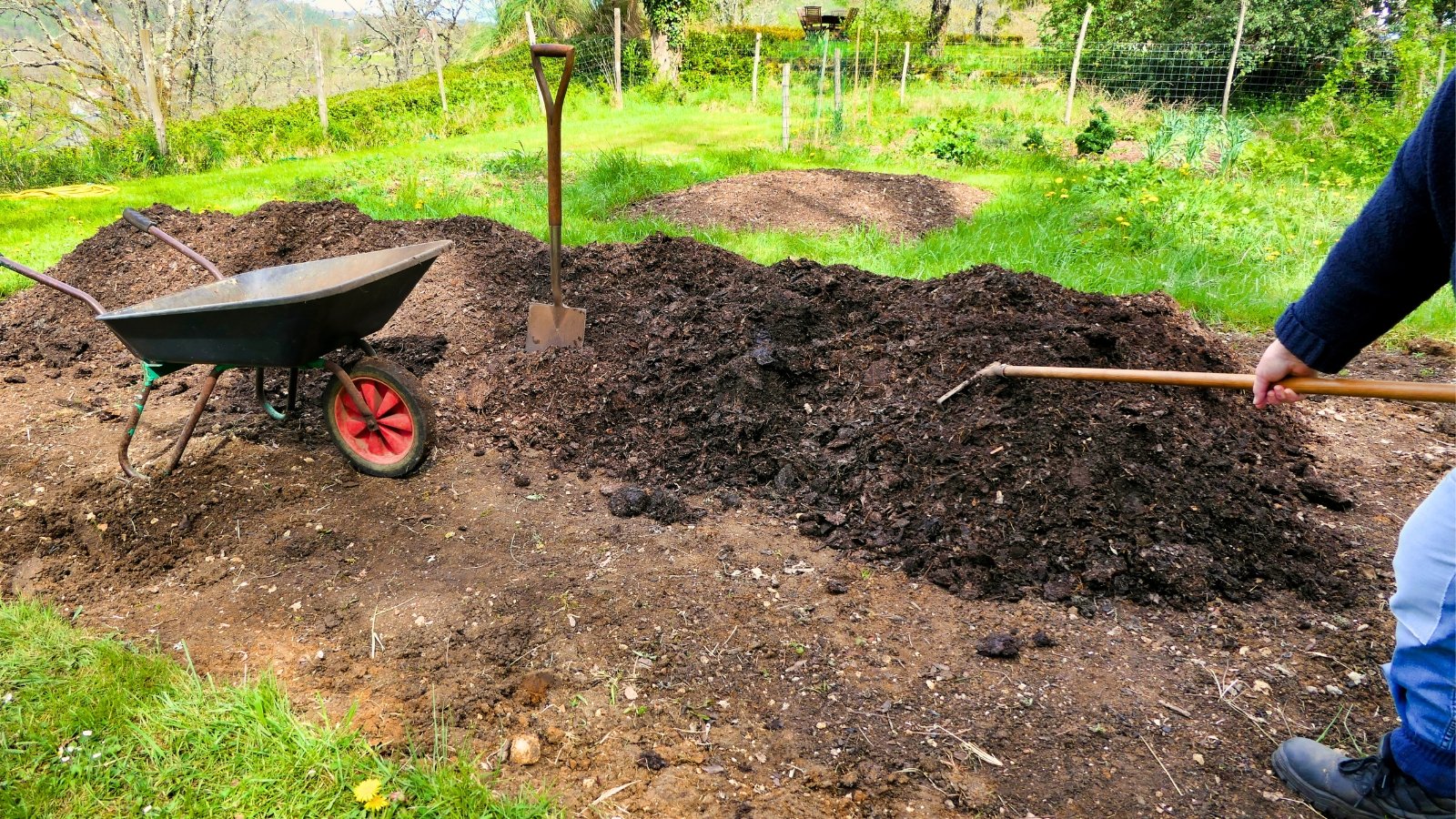

The very best factor you are able to do for the belowground ecosystem is add natural matter! Compost is named “black gold” for a motive. Decomposed plant and animal supplies enrich the grime with very important microorganisms that assist create construction beneath the floor. This consists of elaborate clay matrixes, fungal “glues”, and bacterial habitats that truly assist maintain onto vital minerals within the root zone.
Sandy and degraded soil is essentially the most weak to leaching. You should use compost, peat moss, manure, mulch, and leaf litter to quickly enhance the construction and preserve minerals “locked in” with surrounding particles. This will even enhance total plant well being and water retention, which means much less drought stress and better yields!
Keep away from Overfertilizing
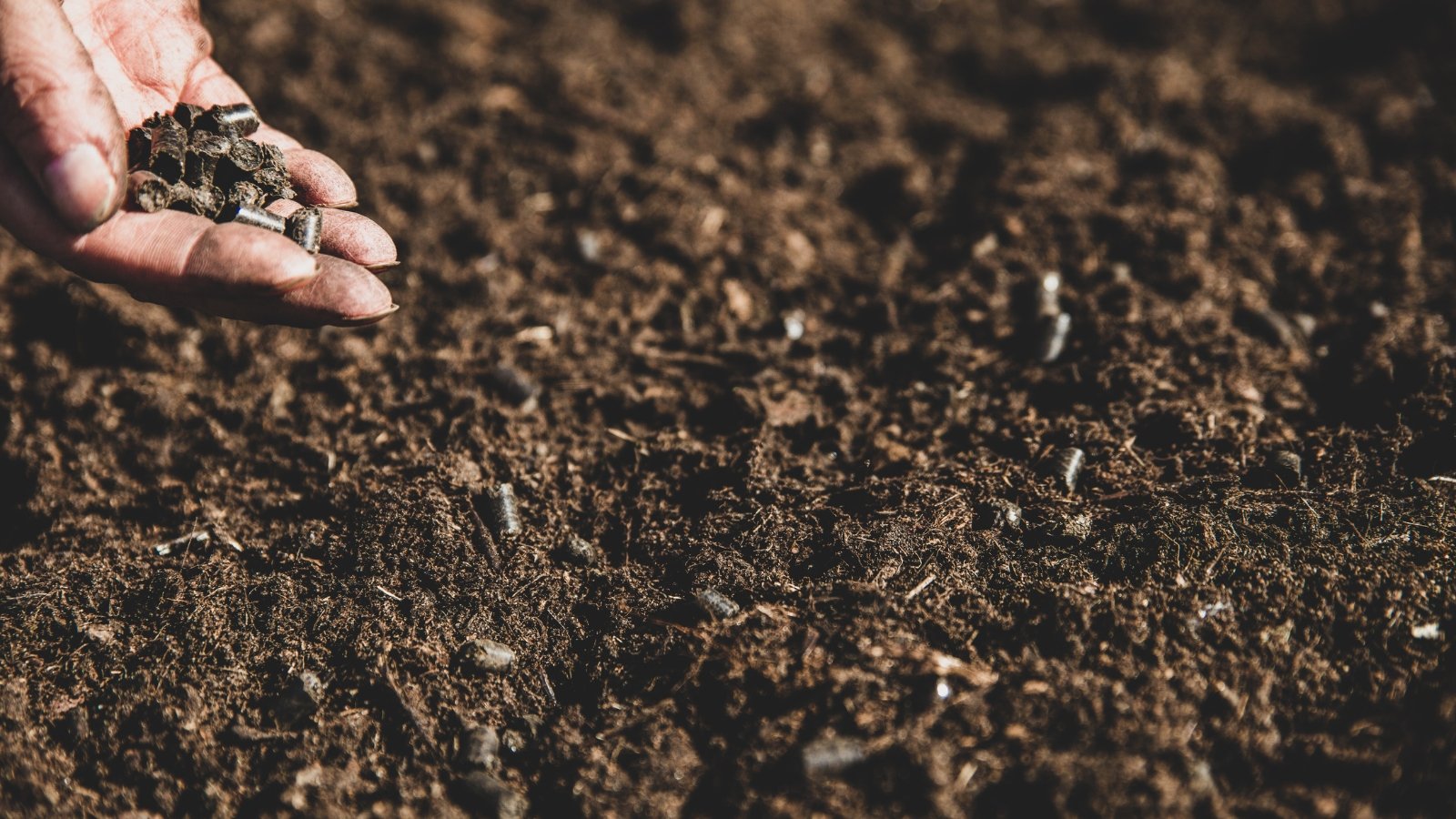

No person can eat nonstop. If there may be an excessive amount of fertilizer, your crops might not have the time or vitality to uptake it and use it. Overfertilizing results in excessive ranges of unused fertility that may simply get flushed out. When including fertilizer merchandise, it’s a lot better to air on the facet of warning. Feed lower than you assume. You may all the time add extra later, however you possibly can’t take it out.
Keep away from Artificial Fast-Launch Fertilizers
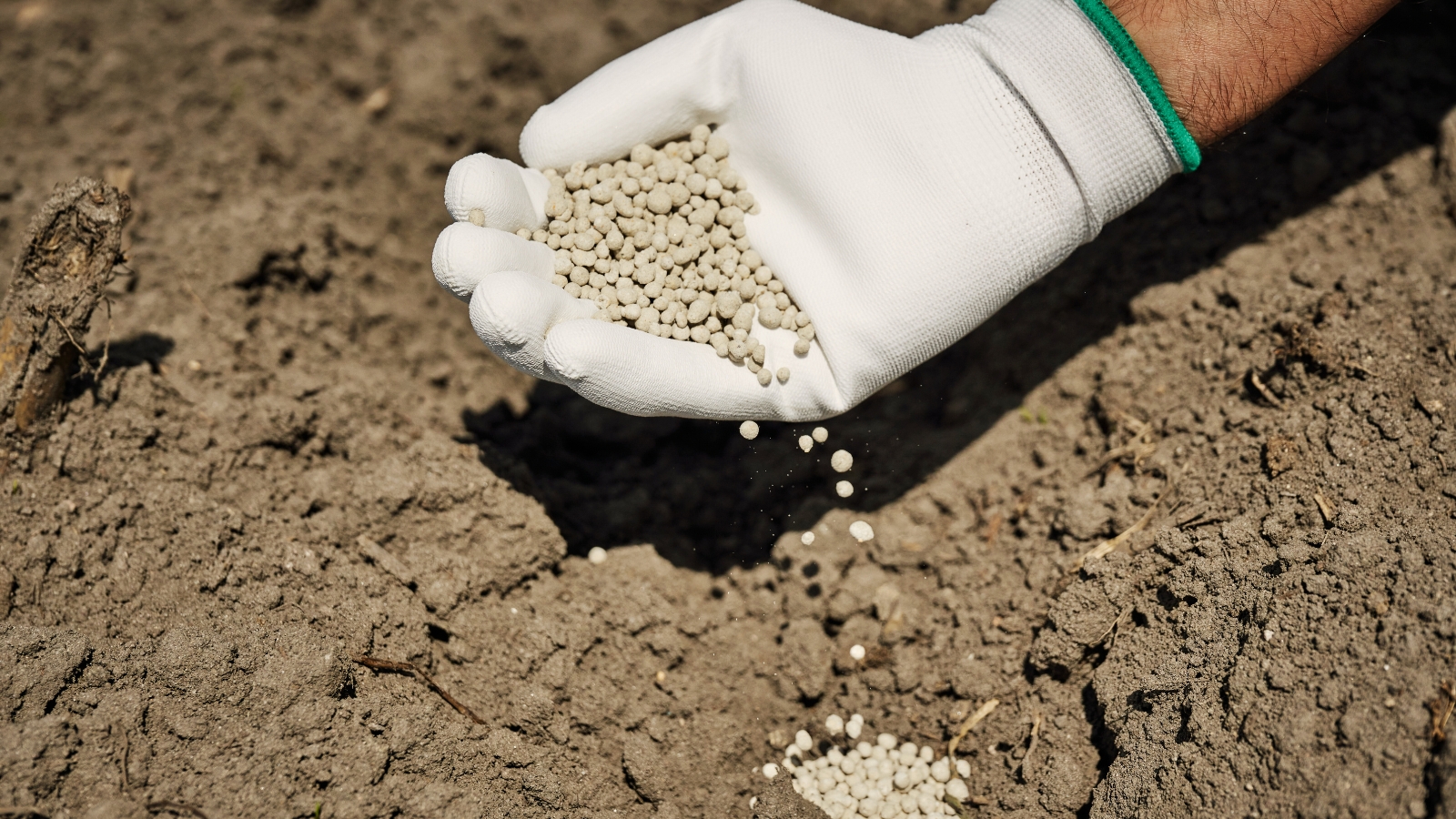

Speedy-release artificial fertilizers are extremely water soluble and plant obtainable. This implies they’re additional susceptible to leaching! Natural gardeners already keep away from artificial merchandise to make sure the well being of their backyard ecosystems, however right here is one more reason to keep away from these fertilizers: they will severely contaminate waterways!
Artificial nitrate air pollution from quick-release fertilizers is a international air pollution concern. Analysis exhibits that lower than 50% of the utilized artificial nitrogen is definitely utilized by crops. The remaining turns into air pollution in waterways, which kills wildlife and harms our freshwater assets!
To keep away from contributing to this concern, select slow-release natural fertilizers. These merchandise will not be as quickly obtainable to crops, and they’re much less water soluble. Because of this they require microbial decomposition to regularly grow to be obtainable over time. As a substitute of megadosing crops with a ton of vitamins without delay, slow-release fertilizers present lengthy lasting nourishment that sticks round within the soil profile.
Use Mulch
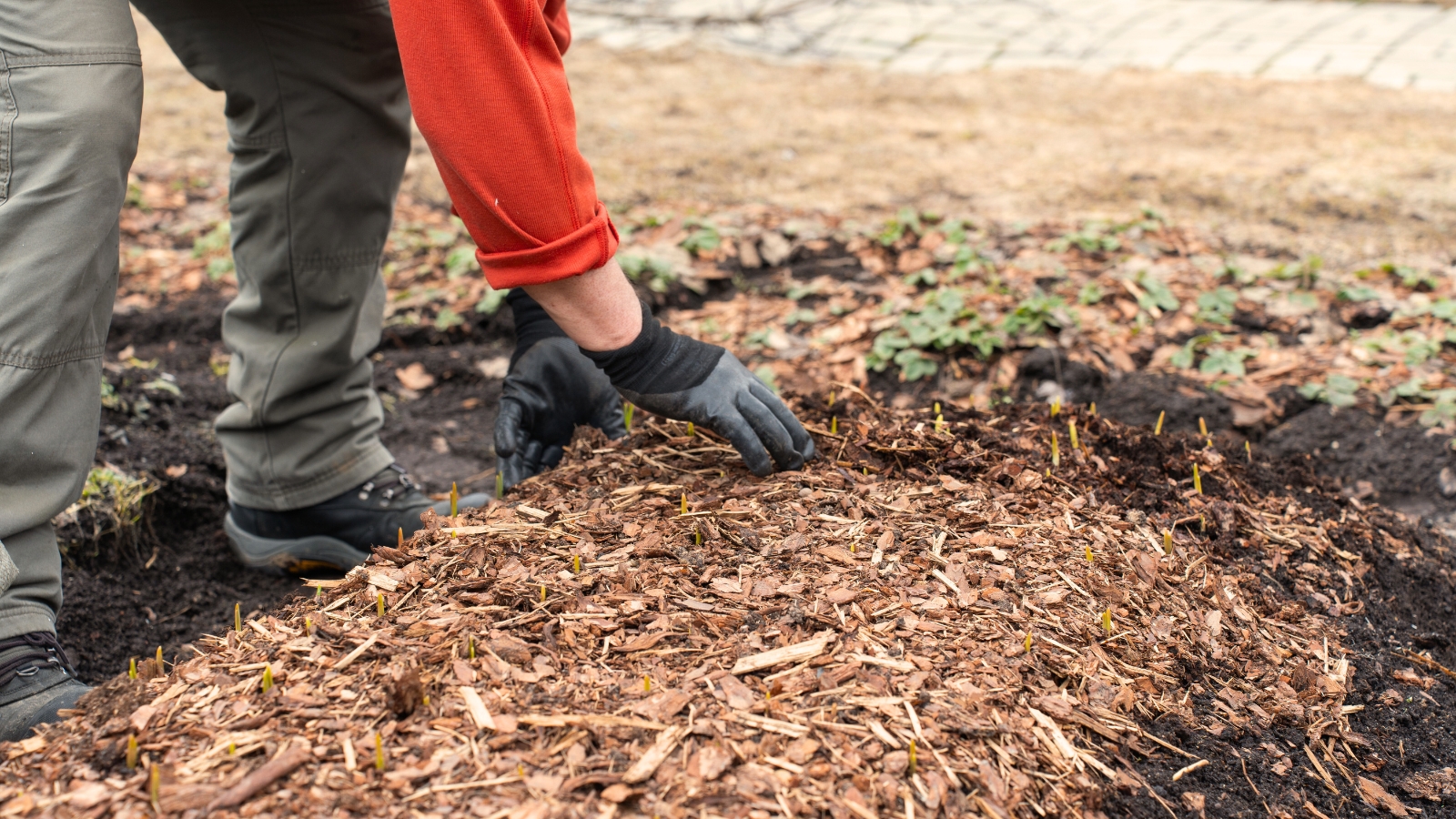

Straw or leaf mulch is essential for safeguarding the floor of backyard beds. You by no means wish to backyard bare! This doesn’t have something to do with what you put on—it’s about your soil. By no means depart it bare or barren!
Mulch is sort of a protecting layer that buffers the delicate grime from intense daylight and rainfall. This natural materials helps maintain particles in place whereas slowly decomposing and enriching the soil with extra steady vitamins that received’t wash away.
Keep away from Overwatering
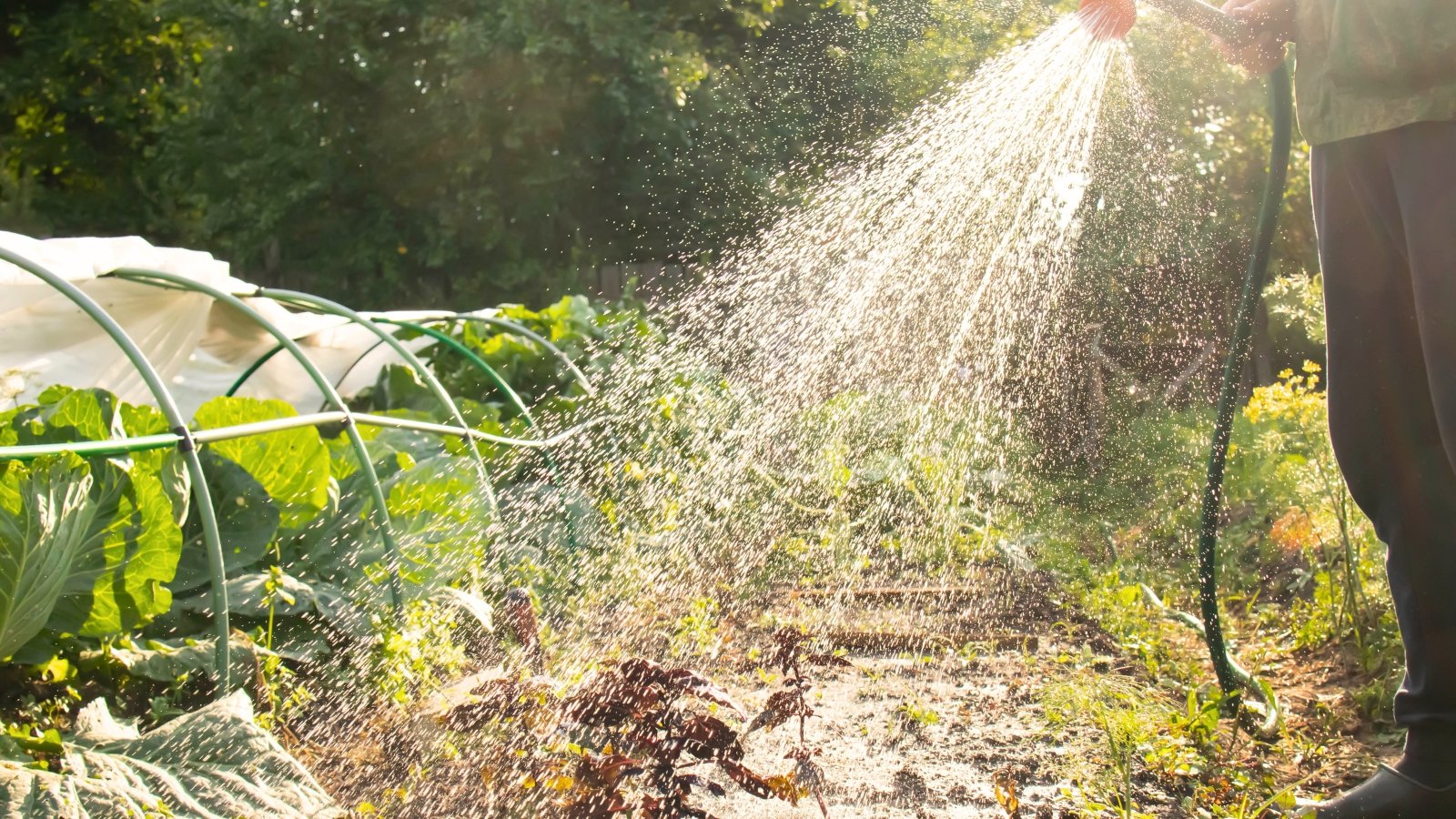

Extreme irrigation may cause many points, together with leaching, root rot, compaction, and fungal ailments. If the bottom is oversaturated, you might discover yellow, droopy, or sick crops that actually don’t wish to sit in soggy beds.
The answer is to all the time verify the moisture earlier than watering. If the bottom is already moist a number of inches down, you possibly can let it dry out one other day or two earlier than irrigating once more. Ideally, the soil ought to by no means really feel wetter than a wrung-out sponge. Soggy floor quickly flushes away fertilizers.
If you happen to typically overlook to show off your irrigation, spend money on a timer or check out a distinct system that may forestall you from saturating an space. Whereas we can not management the rain, we will management how a lot moisture comes out of the hose or irrigation strains!
Stop Runoff
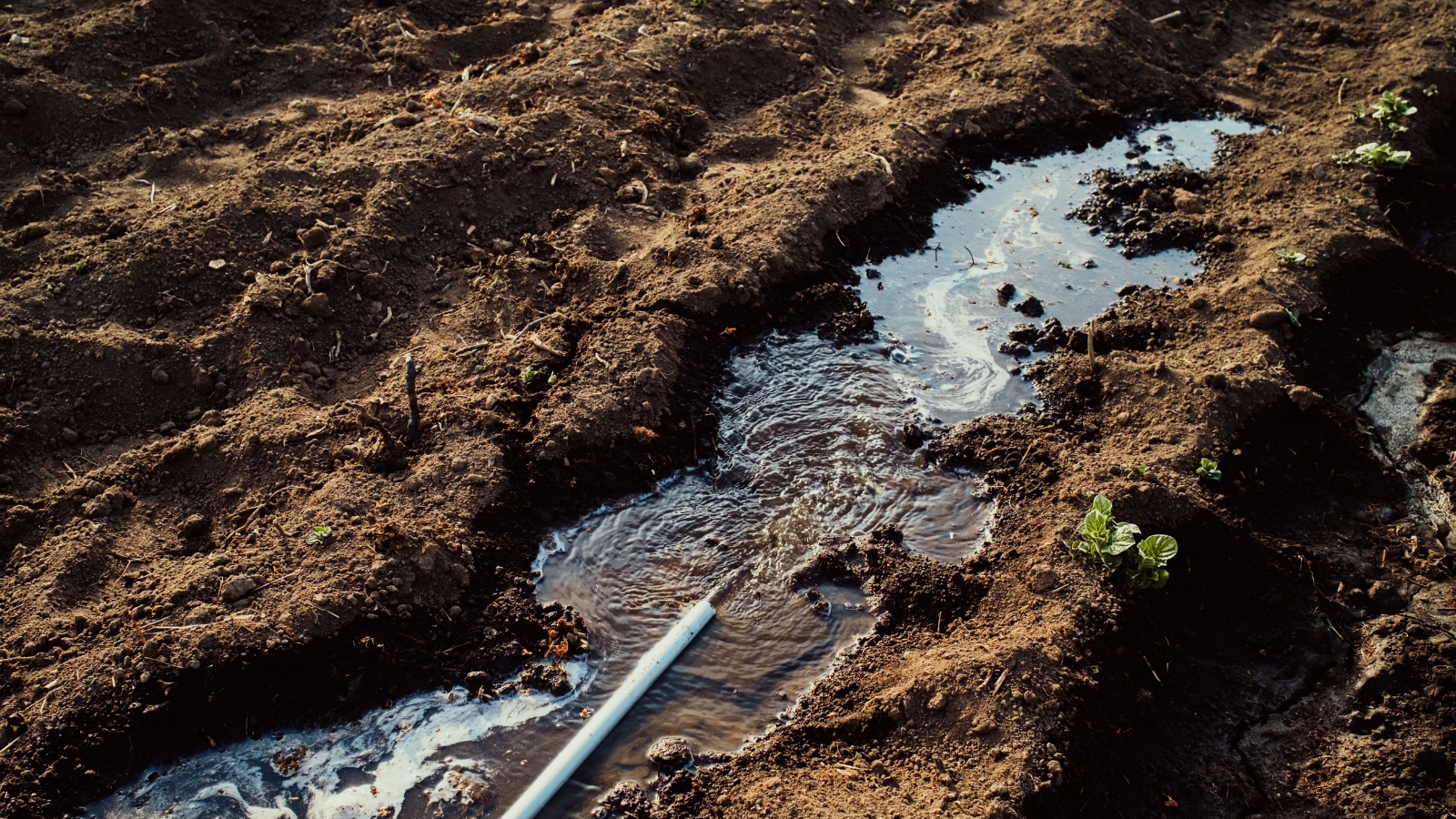

Runoff is carefully linked to leaching. It happens when flowing water types miniature-streams and tributaries by means of your backyard or walkways. The best solution to forestall that is by watching the slope of your backyard, and designing accordingly. Preserve your pathways lined, as a substitute of leaving naked grime. As a bonus, your boots will get much less muddy.
If you happen to discover a significant slope or an space the place grime and moisture are accumulating, use wooden chips, mulch, or rock to gradual the movement of water in that path. Slower movement means much less dashing motion by means of the panorama. This might help preserve vitamins within the space longer, permitting crops to uptake them earlier than they leach out.
Key Takeaways
Most natural, no-till, and regenerative rising strategies naturally assist to scale back leaching. If you wish to defend waterways and guarantee your costly fertilizers are utilized by crops, keep in mind to:
- Decrease tillage and disturbance
- Use natural slow-release merchandise
- Keep away from artificial quick-release fertilizers
- Keep away from overwatering
- Add compost and natural matter
- Use mulch
- Preserve pathways lined
- Enrich sandy soils
[ad_2]
Supply hyperlink
